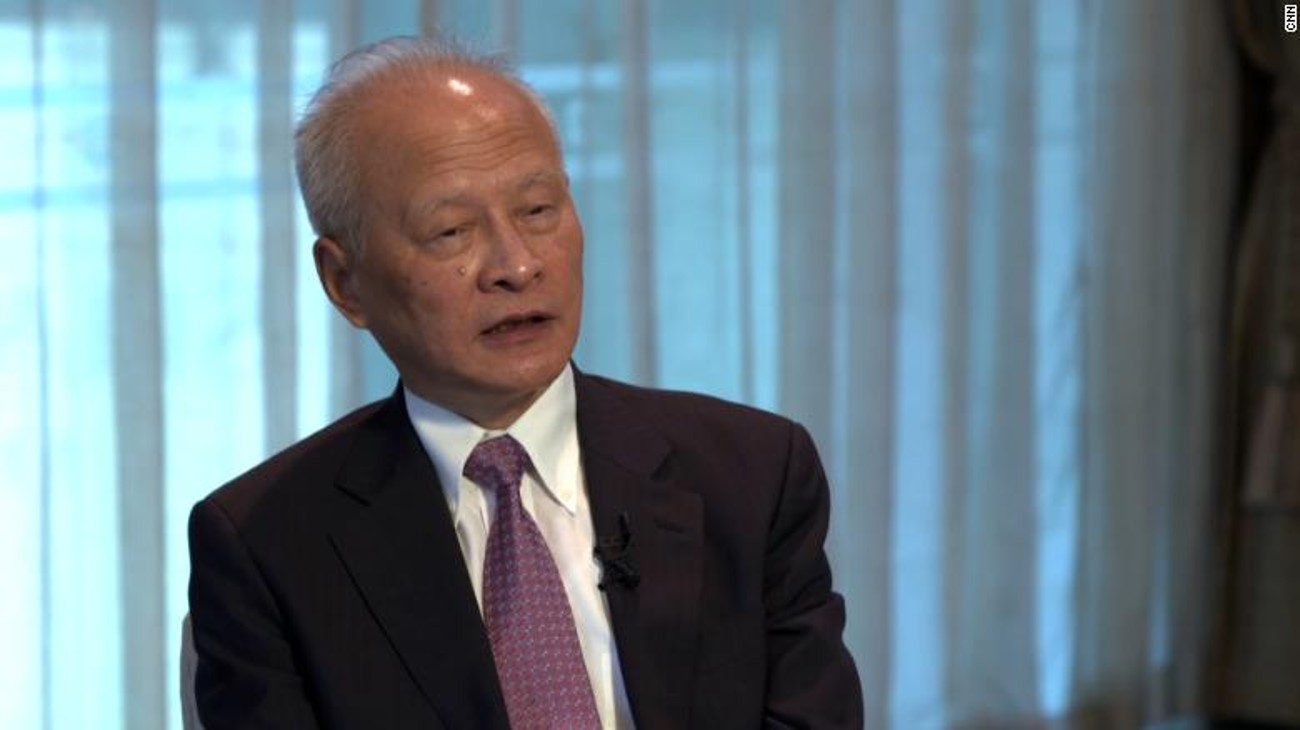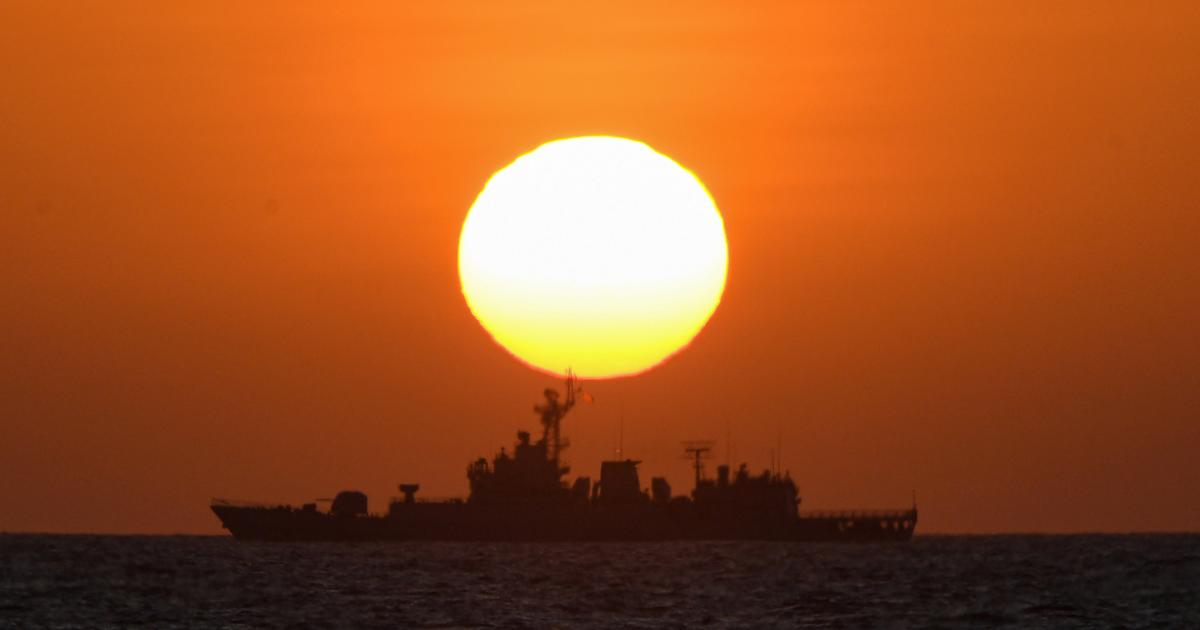Could Taiwan become the "Asian Ukraine"?
2:53
Singapore (CNN) --
China's former ambassador to the United States says Western countries treat the South Pacific as their "backyard," in a throwback to the colonial era, while Beijing sees small island nations as equals.
Cui Tiankai made the remarks in an interview with CNN on the sidelines of the Shangri-La Dialogue defense summit in Singapore on Sunday.
In the interview, Cui — who was Beijing's envoy to Washington from 2013 to 2021 — sought to play down growing Western concern over Beijing's controversial push for new economic and security deals with Pacific islands.
He insisted that China was taking a so-called modern approach in its relationship with its neighbors, and offering to help in "any way" it can, while asserting that the mindset of Western countries was stuck in the past.
ANALYSIS |
Why sparsely populated islands in the South Pacific Ocean have become the next dispute between the United States and China
China's growing influence in the South Pacific has unsettled Washington, which sees the islands as a strategic link between the US territory of Guam and Australia, and fears that Beijing will be increasingly aggressive in pursuing its agenda in China. the region, while at the same time trying to gain a military foothold.
But Cui said that China — unlike the US and Australia — did not see the region as part of a great power struggle.
advertising
"Perhaps countries like Australia see these countries as (their) backyard, just like the United States sees Latin America as its backyard under the Monroe Doctrine," Cui said.
"I don't think this is (the way countries) should work with each other in the 21st century: it's a thing of the past."
The Monroe Doctrine has been the cornerstone of US policy in the Americas for nearly two centuries.
First announced by US President James Monroe in 1823, "the doctrine warns European nations that the United States will tolerate no further colonization or puppet monarchies" in the Western Hemisphere, according to US government records.
In 1904 it was expanded with the Roosevelt Corollary, which President Theodore Roosevelt devised to warn European nations that they threatened to use armed force to collect the debts of the nations of America.
Why do Russia and China beat the US in developing hypersonic missiles?
3:06
But the most famous invocation of the Monroe Doctrine came in 1962, when President John F. Kennedy used it as a basis to get Soviet missiles out of Cuba during the missile crisis.
Although tensions around China's growing presence in the South Pacific are far from the levels reached during the 1962 crisis, Western concern is growing, and has been reinforced by Beijing's announcement of a pact of security with the Solomon Islands.
The Pacific Islands, located largely northeast of Australia, have long been regarded by military strategists as vitally important.
Both the United States and Australia are concerned that Beijing's playbook in the Pacific could resemble that of the South China Sea, where China has for years been turning remote islands and obscure reefs in disputed parts of the sea into fortified military bases.
It has also been accused of using fishing vessels to swarm over territory it claims as its own.
China continues to claim the vast majority of this 1.3 million square mile sea, over which it has territorial disputes with several other countries, despite a landmark international tribunal ruling against its claims in 2016.
Meanwhile, the island nations of the South Pacific themselves are often more concerned with the ravages of climate change than geopolitics, and fear being seen as pawns in a great power struggle.
Cui asserted that Beijing does not view island nations that way.
China sends its most advanced fighter jet to patrol the disputed seas in the Pacific
"We want to do our best to help a number of ongoing social and development projects between China and the Pacific island countries," said Cui, who was responsible for China's relations with the Pacific islands before coming to Washington. .
"China never sees these countries - or any other - as part of our so-called 'pantheon,'" Cui said.
"We see them as equal countries, because (we think) that countries big or small, rich or poor, strong or weak, should be treated as equals. This is our principle," he said.
Cui said that this principle also applies to the South China Sea.
Any disputes that occur there must be resolved in private between China and the other countries surrounding the sea, which Beijing claims almost entirely as sovereign territory.
"I strongly advise my American friends, or perhaps some Europeans, not to try to intervene. The more outside countries try to intervene, the more difficult it will be," he said.
ChinaPacific













